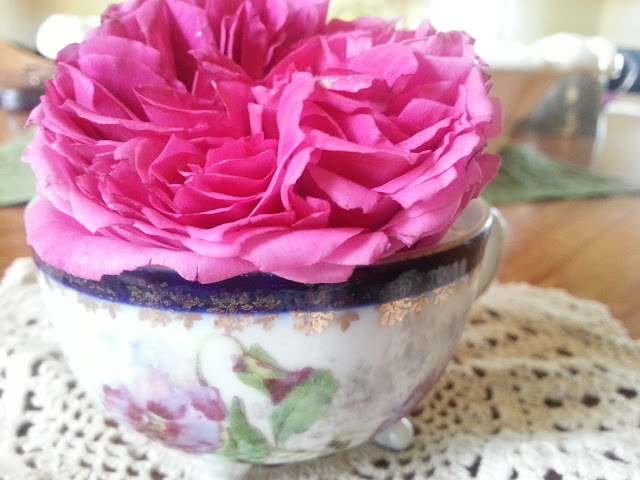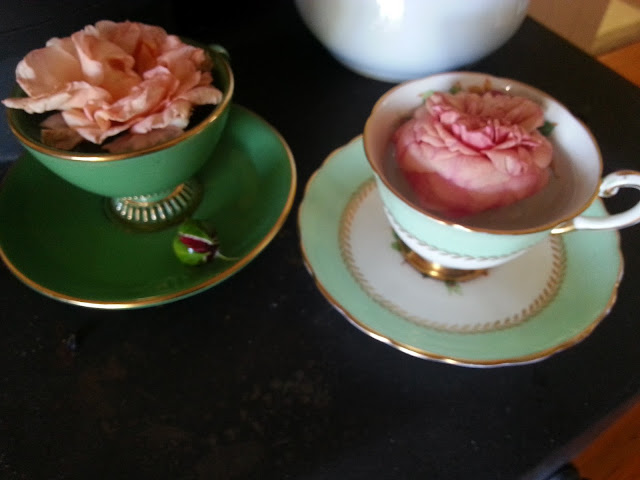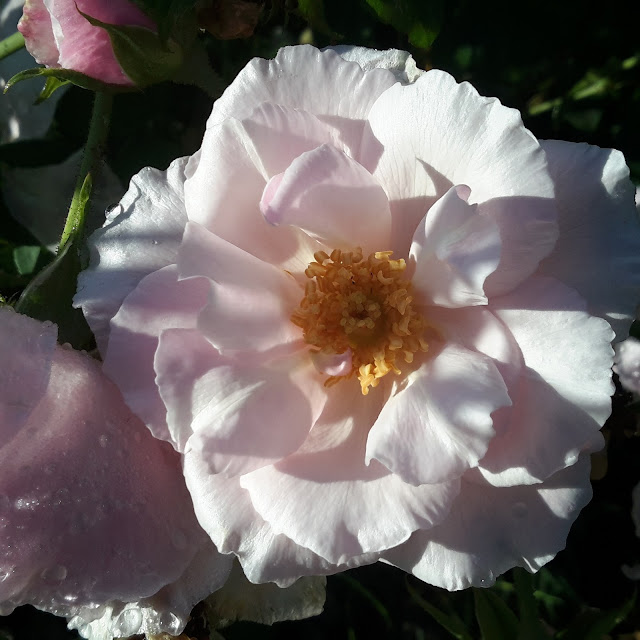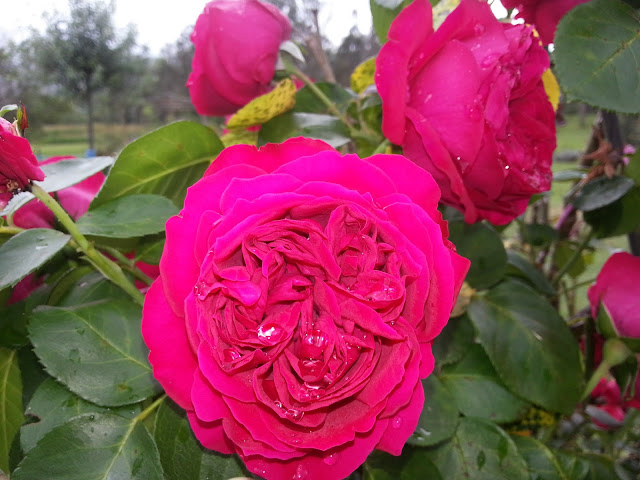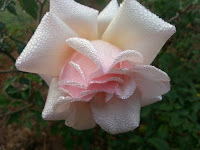The garden can be a wonderful metaphor for living. Just as in every-day life, things can get a bit overwhelming here in the heirloom rose gardens at Edgeworth Lley.
After all the Summer rains, the weeds are threatening to take over the rose gardens. All I can see are weeds encroaching on garden beds painstakingly carved out from the paddocks. I dare not take photos of these areas as they're certainly not part of the vision of a large country rose garden.
From a gardener's perspective, the task of bringing the garden back into some sense of order is a little overwhelming. But, just as I've learnt when undertaking large tasks, like writing a Doctoral thesis, it's best to focus on one idea or area, at a time.
Once I do that, the large task, or idea, becomes doable. In fact, it becomes enjoyable achieving one small thing at a time. And before you know it, a whole lot has been achieved, which is hugely satisfying.
Gradually, instead of the weeds encroaching on the garden beds, I am encroaching on the weeds and releasing the roses, shrubs and perennials from the smothering pasture grasses. And the mounds of weeds are relegated to where they belong; in a pile waiting to be burnt. The ashes from the pile, rich in potash, will then help fertilise the roses in Autumn. And so the cycle continues.
But to get to my main point of this article, I think the weeds in the garden are a good analogy for the overwhelm we can feel in our busy every-day lives. We get swept up into a frenzy of busy, busy, while feeling as though we've lost control of the important.
The same approach for undertaking the task of weeding the garden can also be taken in our ordinary, every days. For example, one source of over-whelm is social media. I rely on social-media every-day, but I've learnt this can induce a sense of business while encroaching on time I need to perform real tasks (like weeding)! Instead of being tuned in all the time, I now have 'quality' time on social-media; quarantining it to certain times of the day. The pressure of performing, formally or informally every day and every waking moment can be exhausting.

But, how to relieve this pressure without isolating ourselves and becoming hermits? I believe one way is to re-connect with the natural environment. This may sound impractical in our busy lives. Yet, there are easy ways to include the natural environment throughout our day. Just looking at a tree has been shown to rest our minds and refresh our thinking. And in my research, connecting with nature has been shown to relieve depression and anxiety. In fact, recent research shows that putting our hands in the soil actually exposes us to microbes that benefit mental health. And probably improves our overwhelmed immune systems too!

We have lost our connection with nature to the detriment of our quality of life. And this has also impacted on our ability to experience 'wonderment'; the art of seeing ordinary things as little miracles. If you allow a small child to explore a garden, they will quickly show you what 'wonderment' looks like; pulling a rose apart and allowing the petals to fall in a shower of confetti to the ground; scrunching up gum leaves and sniffing their scent; spying a butterfly and exclaiming with delight as it flies almost within reach; or just walking on scrunchy leaves purely for the sound effects!
Perhaps if we took moments everyday to re-connect with the natural environment, we'd experience a little more joy in our ordinary, every-day lives. And if we passed on this lost 'skill' to our children and grandchildren, we would be giving them life-long skills that build resilience and foster a sense of joy.
A precious legacy indeed.





